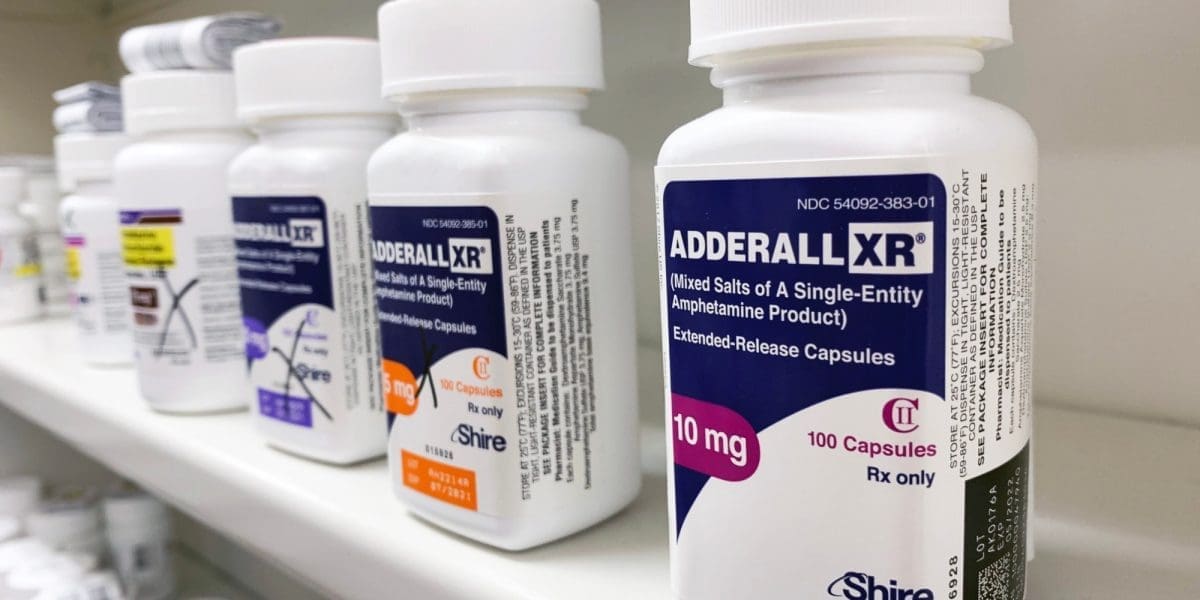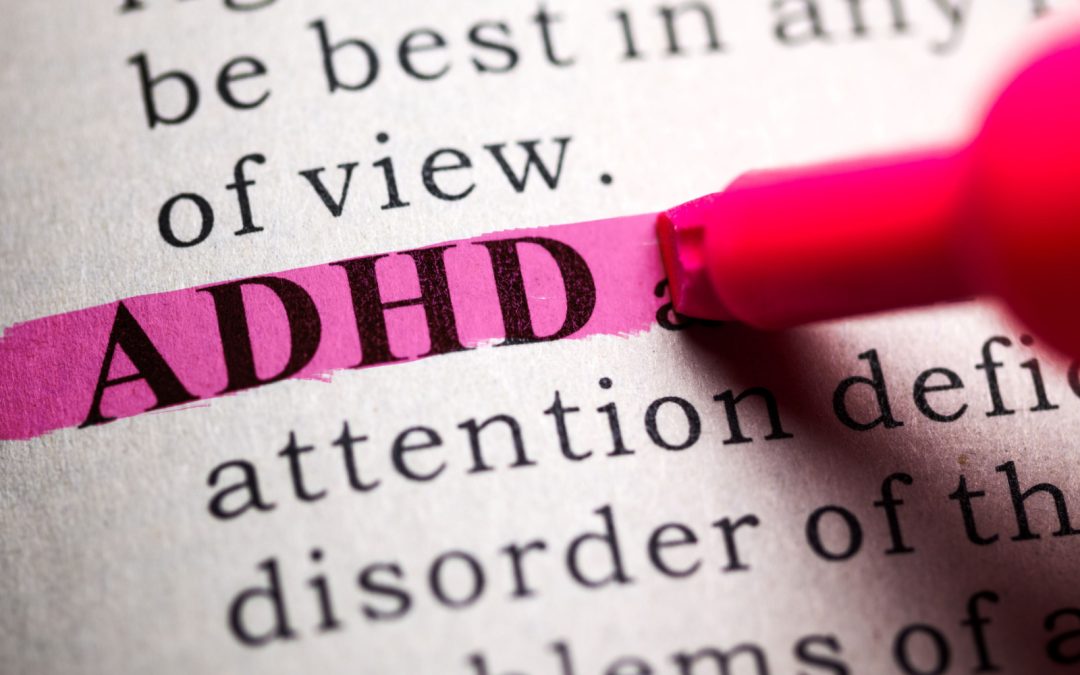Adderall is a Schedule II prescription medication used to treat ADHD and narcolepsy. Even though Adderall is an effective medication for the conditions mentioned above, it has a high potential for abuse and misuse. For example, many individuals combine Adderall and alcohol or other drugs, which can drastically increase their risk for adverse side effects.
If you’re concerned about your or someone else’s use of Adderall and alcohol, keep reading to find out what you can do to stay safe.
How Does Adderall Work?

To understand why doctors prescribe Adderall for ADHD, it’s important to first understand a little about the condition. While there are no clear causes of ADHD, it is theorized to be caused by a lack of norepinephrine and domaine. Dopamine is the chemical in your brain responsible for making you feel good, and norepinephrine is a neurotransmitter that acts as a chemical messenger that helps send nerve signals across nerve endings to other cells. And due to Adderall’s chemical composition, it can help with deficiencies in both of these chemicals.
Adderall is made up of a combination of amphetamine and dextroamphetamine, which are central nervous system stimulants. Consequentially, this medication aims to reduce impulsive behavior by increasing levels of norepinephrine and dopamine in the brain.
However, as a Schedule II drug, Adderall carries a high risk of abuse. While it can be taken safely by people with ADHD or other medical conditions, mixing Adderall and alcohol can greatly increase one’s risk of developing a substance abuse issue.
Can You Mix Adderall and Alcohol?
Mixing Adderall and alcohol often comes with dangerous consequences, largely due to the conflicting effects of these substances. While Adderall affects your central nervous system by giving it a boost, alcohol is a depressant. This means that instead of voiding each other, they compete against one another. In other words, a person with an Adderall prescription might not feel the effects of alcohol as strongly. As a result, they may binge drink, which can increase their risk of developing an alcohol use disorder.
Mixing a stimulant with a depressant can also come with a host of side effects as the two competing substances affect the body. Specifically, when mixing Adderall and alcohol, the two can cause other serious issues, including:
- Tremors
- Anxiety
- Paranoia
- Psychotic episodes
- Stroke
- Uncontrollable vomiting
- Heart arrhythmias
- Loss of consciousness
Why Do People Mix Adderall and Alcohol?
There are various reasons some people misuse Adderall and alcohol. But some studies have determined that people aged 18-25 without a legitimate prescription are among the highest abusers. This is theorized to be caused by many young adults using Adderall at the start of college. Moreover, a study of this age group found that approximately 44% of the participants with ADHD met the criteria for alcohol abuse or dependence, suggesting that combining Adderall and alcohol can lead to problems even if the user has a prescription.
Many college-aged adults also use Adderall to pull all-nighters to help them stay up late studying for exams. Likewise, several students claim that taking Adderall helps them focus and concentrate. But concerningly, the National Survey on Drug Use and Health claims 90% of college students who took Adderall without a medical reason also reported binge drinking alcohol. This begs the question: Why do so many people mix Adderall and alcohol?
Because Adderall is a prescription medication that can only be obtained from a doctor, many people think it’s safe and nonaddictive. However, it’s important to know that that isn’t the case. While Adderall can be taken safely and responsibly, it can also easily be misused, especially alongside alcohol. If you or someone you know is abusing Adderall and alcohol, it’s important to be aware of addiction treatment options near you.
Treatment for Adderall and Alcohol Addiction
If you think a loved one has an Adderall and alcohol problem, then it’s a good idea to look into addiction treatment in your area. Breaking an Adderall and alcohol habit can be challenging, but it’s much easier with professional addiction recovery programming.
If you are one of the many people struggling with Adderall and alcohol addiction in Florida, then the first step in recovery is through a medical detoxification program.
Medical Detox for Adderall and Alcohol
The medical detox program at The Willough at Naples puts patients’ physical and emotional well-being first. During medical detox, individuals receive 24/7 care and monitoring to keep them safe and surrounded by support. This type of around-the-clock care enables people to get help with any concerning withdrawal symptoms they might present. In addition, medical detox care helps you to set a strong foundation on which to build the remainder of your recovery.
While here, patients will be surrounded by medical professionals, mental health therapists, and other addiction recovery experts. The detox process can be challenging, but with the right support system, anyone can make it through the early, vulnerable stages of recovery from Adderall and alcohol addiction.
Dual Diagnosis
Just as addiction is not solely about physical chemical dependency, your addiction treatment cannot focus solely on the physical. That’s why our dual diagnosis program focuses on helping address the underlying mental causes of addiction. By treating both mental health issues and addiction, we can provide comprehensive healing following Adderall and alcohol addiction.
But your mental health is unique, and so are our treatment programs. Some of the most common evidence-based therapies we use include:
- Cognitive behavioral therapy
- Group therapy
- Family education
- Recreational therapy
- Relapse prevention therapy
- Discharge services
Through these therapies provided at our residential drug and alcohol rehab, you can develop the coping skills necessary to achieve long-term sobriety after leaving treatment.
Get Help at The Willough at Naples

If you are seeking help to overcome an addiction to Adderall and alcohol, The Willough at Naples provides the support you need. Our addiction treatment center offers various programs to ensure each patient’s unique needs are met. At our safe and non-judgmental recovery center, you will be surrounded by medical professionals who can help you on your recovery journey. To learn how we can help, call our admissions team at 800-722-0100 or submit a confidential contact form online. Trying to recover from polysubstance abuse can be daunting, but it is always easier with professional help.

